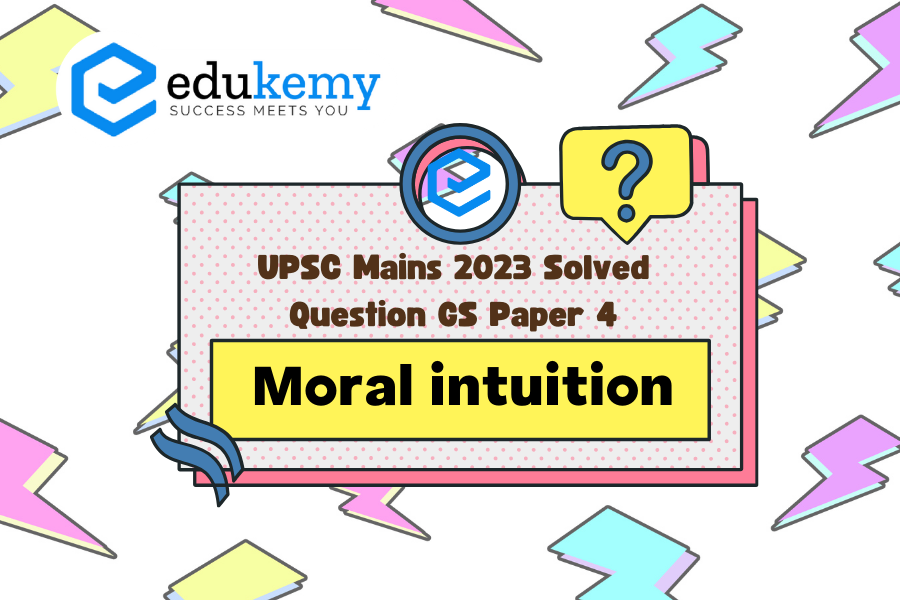Moral intuition and moral reasoning are two distinct approaches through which individuals navigate ethical dilemmas and make moral judgments. Moral intuition refers to the immediate and instinctual feelings or reactions that individuals experience when faced with ethical decisions, often without conscious deliberation or explicit reasoning. It operates on a subconscious level, drawing upon deeply ingrained values, emotions, and instincts. For example, consider a person witnessing a stranger in distress and feeling an immediate urge to help without consciously weighing the pros and cons. This spontaneous response is driven by moral intuition. On the other hand, moral reasoning involves the deliberate and conscious process of evaluating moral principles, considering various perspectives, and analyzing consequences before arriving at a moral judgment. Unlike moral intuition, moral reasoning relies on logical thinking, empirical evidence, and ethical theories. For instance, a person may engage in moral reasoning when contemplating the ethical implications of a complex societal issue such as healthcare policies or environmental conservation efforts, carefully weighing different arguments and moral principles to reach a reasoned conclusion. In summary, while moral intuition operates swiftly and intuitively, moral reasoning involves a more deliberate and analytical approach to moral decision-making.
Contents
Answer
Moral intuition and moral reasoning are both an important aspect of ethical decision making. They both play a crucial role in shaping our moral judgements though they operate in different ways.
| Moral intuition | Moral reasoning | |
| Definition | Moral intuition involves immediate, spontaneous responses to ethical dilemmas without conscious deliberation. e.g. – acting instantly to save a drowning child. | Moral reasoning involves a conscious and rational evaluation of ethical choices. e.g. – famous trolley problem |
| Nature | It relies on deeply ingrained moral values and emotions. e.g. Gandhiji suspending NCM in the aftermath of Chauri Chaura as he abhorred violence | It utilises logical arguments and principles to arrive at a moral decision. e.g. Raja Ram Mohan Roy’s opposition to Sati. |
| Speed of decision-making | It enables very fast decision making e.g. for offering humanitarian assistance to Pakistan in the flood aftermath, India tried to help without hesitation. | Slow, deliberate and conscious decision making. e.g. – India’s Afghan policy post-Taliban takeover. |
| Subjectivity | Personal experiences, cultural and societal influence plays a role in shaping it, making it highly subjective. e.g. An animal lover would disapprove of animal sacrifice while for a devout it is an acceptable practice. | It tends to be universal as it is grounded in logic and reason. For examples- laws. |
| What qualities are displayed | Empathy, kindness, compassion etc. e.g. – ex-gratia relief during disaster. | Objectivity, fairness, impartiality, non-partisanship etc. E.g. – Judiciary deliberating same-sex marriage etc. |
Moral intuition and reasoning working in tandem enriches our ethical decision making, it fosters empathy and rationality for thoughtful and compassionate choices.
In case you still have your doubts, contact us on 9811333901.
For UPSC Prelims Resources, Click here
For Daily Updates and Study Material:
Join our Telegram Channel – Edukemy for IAS
- 1. Learn through Videos – here
- 2. Be Exam Ready by Practicing Daily MCQs – here
- 3. Daily Newsletter – Get all your Current Affairs Covered – here
- 4. Mains Answer Writing Practice – here


